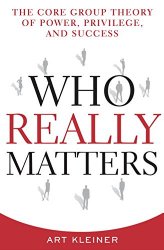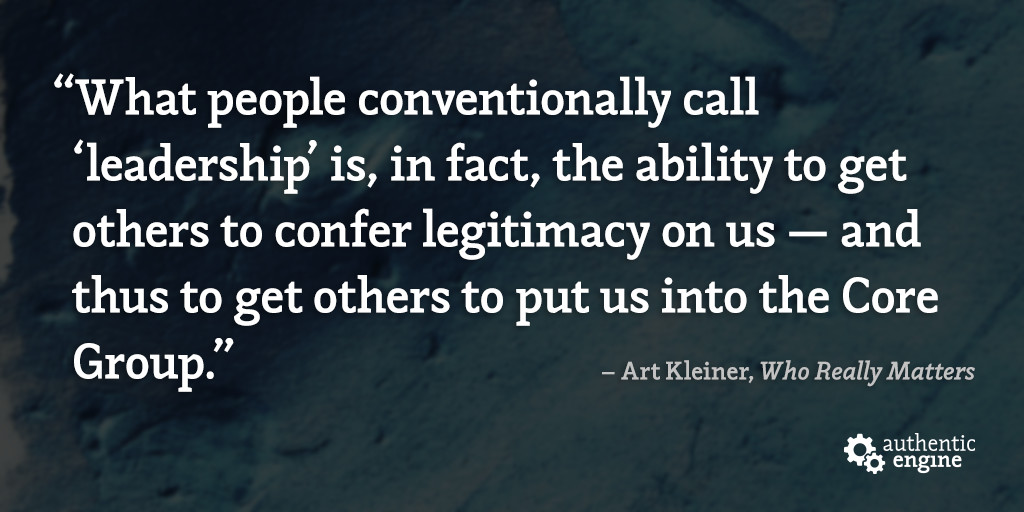 Who Really Matters (Amazon, Goodreads, Powells) puts forth the theory that central to every organization is a Core Group of people who really matter.
Who Really Matters (Amazon, Goodreads, Powells) puts forth the theory that central to every organization is a Core Group of people who really matter.
This post is part of a series summarizing the book and covers Chapter 5: Power & Legitimacy . You may want to start with the introduction.
Chapter 5: Power & Legitimacy
This chapter explores the source and exchange of power and legitimacy between Core Group members and others in the organization.
Those with formal authority have limited, positional power. Being a Core Group member provides a greater power, that of legitimacy. This power comes from people listening to, being influenced by, and acting on your behalf. We generally do this even when we do not fully believe in the direction we’re asked to go because to do so otherwise taxes are capacity:
It is terribly hard to make all the decisions. Most of the time, most of us would rather just act in favor of those who have legitimacy in our minds, even if we feel antagonistic to them. (p. 49)
So, we depend on those in the Core Group for direction, for the ability to do our jobs without having to pay too much attention. And they, in turn, depend on us as a source of their legitimate power. Sometimes we confer legitimacy to those who are not part of the Core Group simply because they look like Core Group members. (Recall that the Core Group roster is ephemeral and implicit; We don’t always know who Core Group members are.)
Thinking about how Core Group members become part of the Core Group — through collecting legitimacy conferred by others — is important for three reasons.
One, the more aware we are, the more power we have:
In the end, the more conscious we become of the way that we carry our bosses in our heads — the more conscious we become of our ability to confer legitimacy — the more power we can exert in the way we do it. (p. 51)
Two, the more we understand how legitimacy is conferred, the more we can learn to accrue it ourselves:
What people conventionally call “leadership” is, in fact, the ability to get others to confer legitimacy on us — and thus to get others to put us into the Core Group. (p. 52)
And three, accruing legitimacy is an effective way to create change:
Building legitimacy is frequently overlooked as a way to influence organizations, but in the end it is probably the most effective way, especially when it is grounded in your own authentic persona. (p. 52)
What’s Next?
Stay tuned for our next post in this series, a summary of Chapter 6: Employees of Mutual Consent, explores how to make the most of being an “employee of mutual consent,” that is someone not a member of the Core Group.
Citations
Kleiner, Art. Who Really Matters: The Core Group Theory of Power, Privilege, and Success. 1st ed. New York: Currency/Doubleday, 2003.
This post is part of our Book Summary series in which we share summaries of books about leadership, governance, and community building. To discuss the book, leave a comment below or join our Goodreads group.


0 Comments